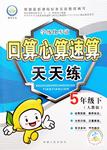题目内容
What surprised us most is that be doesn’t know the differences between the two books lie.
A. that B. what C. which D. where
练习册系列答案
 学练快车道口算心算速算天天练系列答案
学练快车道口算心算速算天天练系列答案
相关题目
7.Every night,my mother would come to my room,lean down and push my long hair out of the way,then kiss my forehead.
I don't remember when it first started (16)C me---her hands pushing my hair that way.But it did make me annoyed,for they felt work-worn and(17)Aagainst my young skin.Finally,one night,I shouted at her:"Don't do that any more-your (18)D are too rough!"She didn't say anything in (19)C.But never again did my mother close out my day with that(20)Bexpression of her love.
Time after time,with the(21)Dyears,my thoughts returned to that night.I'm not a little girl any more.Mom is in her mid-seventies,and those hands I (22)D thought to be so rough are still doing things for me and my (23)A.
Now,my own children are(24)B.Mom no longer has Dad.It was late on that Thanksgiving Eve,as I went to sleep in the bedroom of my youth,a familiar hand (25)B before stealing across my face to brush the (26)Afrom my forehead.Then a kiss(27)C touched my brow.In my (28)A,thousands of times,I(29)Dthe night my young voice complained.(30)CMom's hand in my hand,I said how(31)BI was for that night.I thought she'd remember,as I did,(32)DMom didn't know what I was talking about.She had forgotten-and (33)C-long ago.
That night,I fell asleep with a new (34)Bfor my gentle mother and her caring hands.And the(35)A I had carried around for so long was nowhere to be found.
I don't remember when it first started (16)C me---her hands pushing my hair that way.But it did make me annoyed,for they felt work-worn and(17)Aagainst my young skin.Finally,one night,I shouted at her:"Don't do that any more-your (18)D are too rough!"She didn't say anything in (19)C.But never again did my mother close out my day with that(20)Bexpression of her love.
Time after time,with the(21)Dyears,my thoughts returned to that night.I'm not a little girl any more.Mom is in her mid-seventies,and those hands I (22)D thought to be so rough are still doing things for me and my (23)A.
Now,my own children are(24)B.Mom no longer has Dad.It was late on that Thanksgiving Eve,as I went to sleep in the bedroom of my youth,a familiar hand (25)B before stealing across my face to brush the (26)Afrom my forehead.Then a kiss(27)C touched my brow.In my (28)A,thousands of times,I(29)Dthe night my young voice complained.(30)CMom's hand in my hand,I said how(31)BI was for that night.I thought she'd remember,as I did,(32)DMom didn't know what I was talking about.She had forgotten-and (33)C-long ago.
That night,I fell asleep with a new (34)Bfor my gentle mother and her caring hands.And the(35)A I had carried around for so long was nowhere to be found.
| 16.A.surprising | B.hurting | C.annoying | D.amazing |
| 17.A.rough | B.gentle | C.smooth | D.strong |
| 18.A.noises | B.words | C.feelings | D.hands |
| 19.A.anger | B.silence | C.reply | D.fear |
| 20.A.healthy | B.familiar | C.popular | D.perfect |
| 21.A.coming | B.remaining | C.approaching | D.passing |
| 22.A.often | B.even | C.never | D.once |
| 23.A.family | B.neighbor | C.husband | D.home |
| 24.A.developed | B.grown | C.moved | D.forgotten |
| 25.A.imagined | B.hesitated | C.regretted | D.trembled |
| 26.A.hair | B.tears | C.dirt | D.kisses |
| 27.A.quickly | B.roughly | C.gently | D.slowly |
| 28.A.memory | B.opinion | C.history | D.diary |
| 29.A.chanced | B.missed | C.hated | D.recalled |
| 30.A.Beating | B.Picking | C.Catching | D.Stopping |
| 31.A.happy | B.sorry | C.annoyed | D.amused |
| 32.A.and | B.while | C.because | D.but |
| 33.A.remembered | B.faded | C.forgiven | D.apologized |
| 34.A.hope | B.appreciation | C.thought | D.approval |
| 35.A.guilt | B.pride | C.sorrow | D.failure. |

